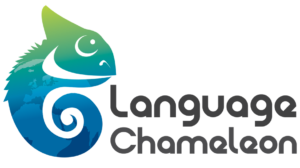
Hi, I’M ANTHONY…
… The “1 language-a-month guy” or also known as the “Language Chameleon”
“DEAD MOMENTS”, WHAT ARE THEY?
We were taught a great deal of many things in classrooms throughout our education; however, no emphasis was placed on giving us tools, plans, and strategies to study outside of these classrooms. Teachers would get frustrated at our lack of studying outside of class; to them, it was something natural and logical, we should all be studying in between classes, in between days, in between weeks.
- So, what went wrong?
- Why didn’t we?
- Too lazy maybe?
- Or, no clues as to HOW to optimize our time outside of class so the independent learning would compensate the instructional learning?
I will reveal to you how to steal this precious commodity called “time” from your daily 24 hours.
So, what are these “Dead Moments”?
They are these dull minutes, quarters, halves, and sometimes full hours that go without noise during the day.
These blocks of minutes waste valuable study time and ultimately, your language goal.
They are moments when you are doing absolutely nothing, like waiting for something/someone or queuing up.
Still don’t get it?
Let’s look at the follow this example:
Let’s say we are in a mood and decide to repaint the whole façade of your house, and by doing so we spill up to half a liter of valuable paint on the ground. Now, any cost-conscious, Sunday carpenter would place buckets beneath them to recoup the loss and use it again. However, most of us would just let it go to waste, right?
Well, it is the same with the time we allocate to language learning. Let’s say we need around 1000 hours of study to reach our goal of fluency in any given language. The time spent at studying it is the paint we efficiently use on the façade. But the times that go unnoticed, such as the time spent in a queue at the bank, the moments spent behind the wheel, or the instants spent waiting for your cake to bake, rob you of valuable time that would otherwise pile up to kill off those valuable 1000 hours.
If you fail to recognize them and use them, they are lost forever and your race to reach this precious 1000 hours mark will seem further and further away from you.
Making full use of these “Dead Moments” and eliminating them altogether will not only assure you get ahead of other students not giving them the attention they deserve, but you will also cut down dramatically the time that is needed to reach your language target.
So, here is my question to you:
“What do you do while you’re cooking, driving, jogging, brushing your teeth, on the throne, or waiting for the bus or metro?”
Do you actually optimize those golden minutes to your own selfish benefit? Do you make use of these valuable moments to kill off your language target as fast as possible? The answer is probably “NO”.
Let’s compare Tom and Marie. They are both beginners in Mandarin and both target the B2 level within a year. Tom keeps studying hard, never misses a class, and does all his homework. However, after 8 months of hard work, and to his great surprise, Marie had already attained level B2… whereas, he had just started level B1! What did he do wrong? He just couldn’t help but feel jealous and envious of her… Did she cheat?
No! Marie didn’t cheat she just adhered to my “Dead Moments” principle and applied my language techniques to use them her advantage.
Tom studied 2 hours a day in class and 2 hours at home, spending a whopping 28 hours a week studying Mandarin! While Marie also spent the exact same time studying, she also used all the “Dead Moments” during her day, accounting for an encouraging 1 hour a day. Therefore, we can say she actually studied 28hrs + 7hrs = 35 hours a week!
Now let’s transpose this over a period of 8 months:
Tom: 8 months = approx. 32 weeks x 24 hours = 748 hours!
Marie: 8 months = approx. 32 weeks x 35 hours = 1,120 hours!!!
That’s a whopping 372 hours difference over just a period of 8 months! That’s got to make the difference, wouldn’t you agree? But not just that. While Tom used up his precious in-home hours to practice “Hanzin” (Chinese characters), Marie used her “Dead Moments” to review them – using flashcards while in a queue, and Anki while in public transport (Anki is an application for your computer or mobile phone that lets you study Japanese (or anything, really) using a spaced repetition system to help you learn more effectively than regular flashcards).
It is of upmost importance that you start taking advantage of those “Dead Moments” if you want to reach the finish line as soon as possible.
I will be posting videos teaching you how to make the best out of those “Dead Moments”!
